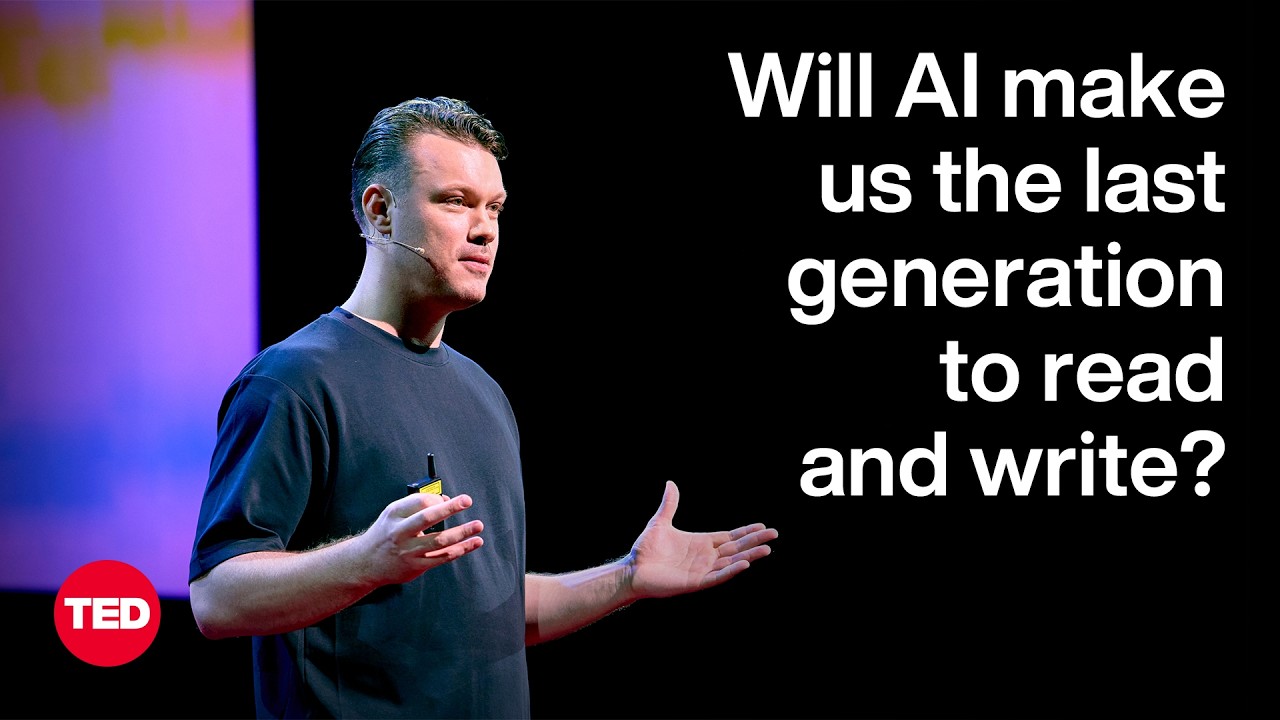In his TED talk, Victor Riparbelli argues that future generations may be the last to read and write in traditional text formats, as advancements in technology and the rise of digital media are shifting communication towards more intuitive methods like audio and video. He highlights the potential of AI to democratize content creation, while also urging society to thoughtfully navigate the ethical and practical implications of this transformation in communication.
In the TED talk by Victor Riparbelli, he presents a provocative idea that future generations may be the last to read and write in traditional text formats. He argues that humanity’s ongoing quest for better communication methods is leading us toward more intuitive forms, such as audio, video, and immersive technologies. Riparbelli reflects on his own love for reading and how technology has transformed the way we consume information, suggesting that as we evolve, we may look back at reading and writing as historical artifacts.
Riparbelli traces the evolution of text as a communication tool, highlighting its historical significance from the invention of the alphabet to the printing press. He acknowledges that while text has been a revolutionary method for encoding thoughts and knowledge, it is inherently limited in conveying nuance and emotion. The speaker emphasizes that text can be misinterpreted and lacks the richness of face-to-face communication, which includes tone and body language. He suggests that as technology has advanced, so too has our desire for more engaging and efficient ways to share information.
The rise of digital media, particularly video and audio, is reshaping how we learn and communicate. Riparbelli points to the popularity of platforms like TikTok and YouTube, which have become preferred sources of information for many, especially younger generations. He argues that this shift reflects a growing boredom with traditional text formats, as people increasingly seek concise and engaging content. The speaker challenges the notion that reading is morally superior, suggesting that the current generation may be more adept at absorbing information through diverse media.
Riparbelli introduces the potential of AI to revolutionize content creation, making it easier and more accessible for everyone to produce high-quality video and audio content. He discusses his company, Sundia, which focuses on AI-generated video, and how these technologies can democratize creativity. With AI, the barriers to producing engaging content are lowered, allowing individuals to become creators without needing extensive training or resources. This shift could lead to a new wave of storytelling and communication that transcends traditional text.
Finally, Riparbelli raises important questions about the implications of AI-generated content, including ethical, political, and design considerations. He invites the audience to reflect on their perceptions of AI in media and whether the distinction between human and AI-generated content matters. As we stand on the brink of this new era, he emphasizes the need for society to navigate these changes thoughtfully, ensuring that the future of communication is both innovative and responsible.
